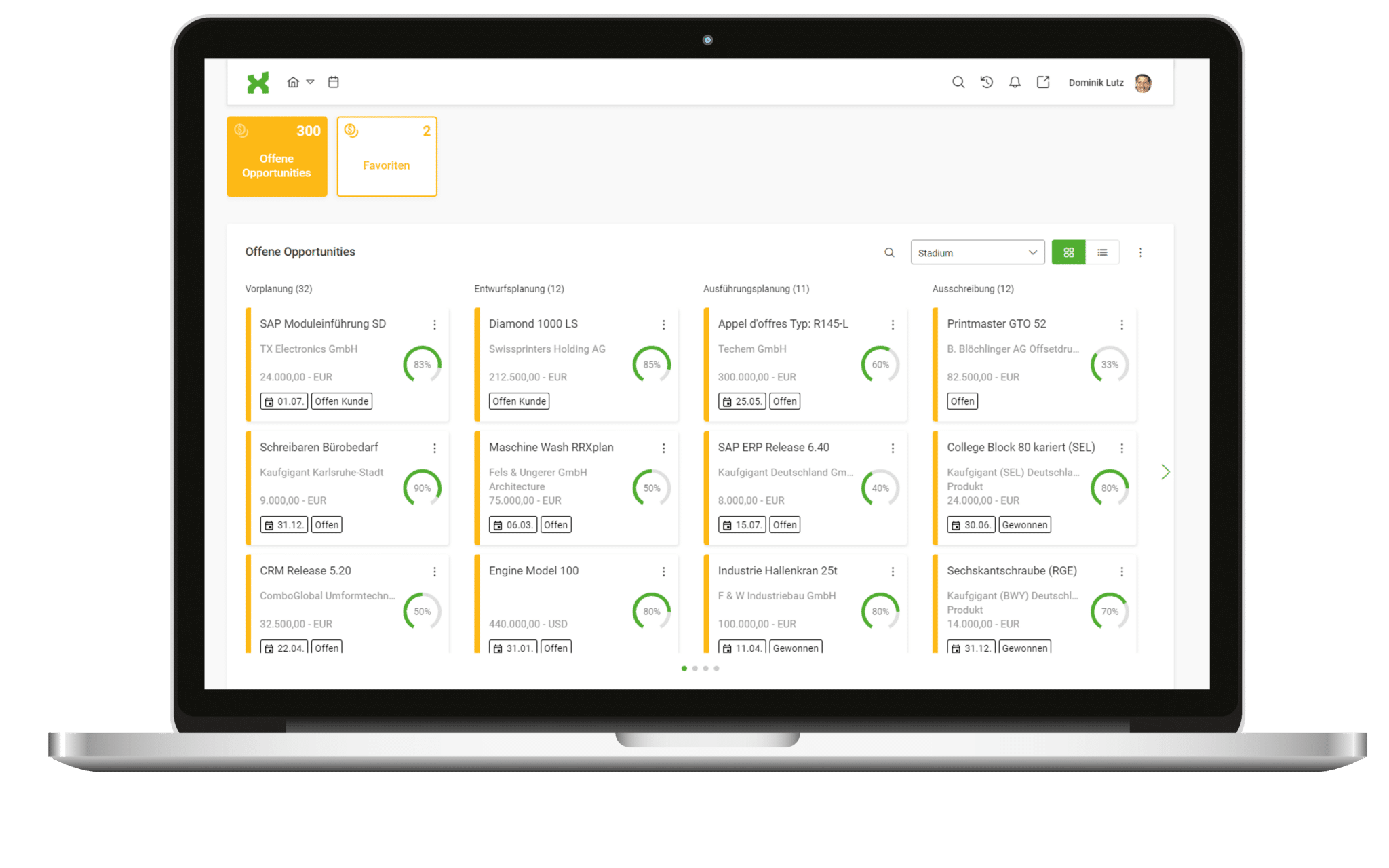Maximum revenue potential in B2B sales through optimized opportunity management
In today’s competitive environment of B2B sales, effective opportunity management is essential to unlock the full potential of the sales pipeline. Although this is considered state-of-the-art, there is still significant room for improvement in reality.

Lead vs. Opportunity
In sales, the terms “lead” and “opportunity” are closely related. Nevertheless, there are important differences. A lead is a potential customer who shows interest in a product or service but is not yet qualified. This means that a lead is first and foremost a contact with the company, for example via a contact form on the website. An opportunity, on the other hand, refers to a concrete sales opportunity with a potential that has already been defined. It is clear that there is a chance to make a sale and generate revenue as a result. That’s why it’s important to handle an opportunity in a professional and targeted manner.
Harnessing the Potential of Opportunity Management in CRM
Managing opportunities is a complex and time-consuming process that often takes several months in a B2B environment. During this time, a lot of data and information about the prospect is collected that cannot be efficiently managed in a simple Excel spreadsheet. Therefore, opportunity management is an essential part of a CRM system that not only creates a transparent and comprehensible information basis for the potential customer at all times, but also creates an up-to-date overview of the sales forecast.
A uniform database enables targeted analyses and evaluations of potential business opportunities. The aim is to collect and analyse information about customer needs, market trends and competitive activities. For example, if you know which competitors you tend to win against, you can more easily select which sales opportunities are most promising and decide how to use your resources most efficiently.
Furthermore, clear communication and collaboration between the different departments within the company is crucial. By combining sales, marketing, and customer service, companies can ensure that all relevant information about potential business opportunities is seamlessly shared and customer needs are effectively addressed.
Effective opportunity management creates planning security for your sales department
Structured opportunity management plays a crucial role in sales success. It helps you maximize your sales because your sales department is working on the sales opportunities that are most valuable to your business. By collecting data in a structured way and evaluating sales opportunities in a CRM system, you ensure that all employees are always on the same page and can react appropriately at the right time. Automated calculations of probabilities and potentials also allow your sales team to save time and focus on the aspects that really matter. In this way, efficient opportunity management helps to increase your closing rate and revenue in the long term.
About the author

 “Effective lead management is the foundation for successful opportunity management. It is important that clear definitions of the terms lead and opportunity are used in the company so that all employees speak the same language.”
“Effective lead management is the foundation for successful opportunity management. It is important that clear definitions of the terms lead and opportunity are used in the company so that all employees speak the same language.”